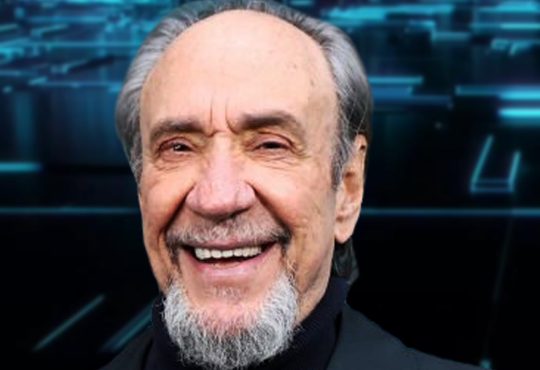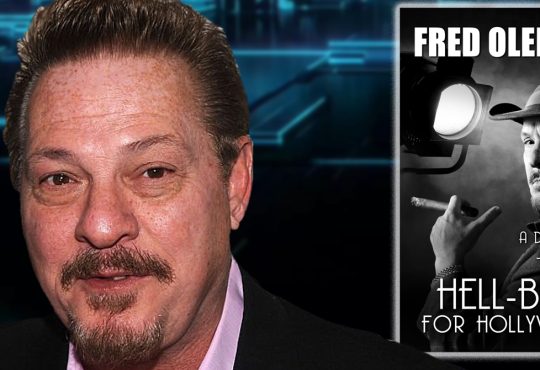‘Allen v. Farrow’: What We Learned From First Three Episodes of Docuseries
The disintegration of the partnership between Woody Allen and Mia Farrow is the focus of the new four-part docuseries Allen v. Farrow, which aired its first episode on Sunday, February 21st. The third, and penultimate episode, aired March 7th on HBO.
The docuseries goes caustically in-depth about the sexual abuse allegations levied against Allen by their adopted daughter Dylan Farrow — and, to a lesser extent, Allen’s affair with another of Mia’s adopted daughters, Soon-Yi Previn — as well as the aftermath of the bitter and public custody battle on the Farrow family. The proceedings were treated as a “trial by tabloid” at the time.
Related: Watch Allen v. Farrow on HBO Max
Allen’s alleged abuse of Dylan on August 4th, 1992 has previously been detailed — in court reporting, in Dylan’s New York Times open letter in 2014, and her 2018 TV interview with Gayle King — but the accusations have never been so painstakingly autopsied: In addition to devastating new interviews with Dylan that lend further credence to the allegations, the filmmaking team behind Allen V. Farrow gained access to police files, affidavits, sworn testimony, taped conversations, and 60 boxes of documentation that were unearthed from an attorney’s storage room, “untouched since the Nineties.”
The docuseries, directed by The Hunting Game documentarian duo of Kirby Dick and Amy Ziering, doesn’t shy away from its one-sidedness, as it is told entirely from the perspective of Dylan and Mia Farrow and their family, friends, and expert witnesses; while Allen did not participate in the docuseries, he defends himself in disembodied voiceover culled from the audiobook of his 2020 memoir Apropos of Nothing. Following the premiere of the first episode, Allen and Soon-Yi Previn also released a statement denouncing the docuseries and calling it a “hatchet job.”
While the series begins with a time when things were still somewhat normal between the couple, they quickly enter into the darker revelations. Here is what we learned from the first three episodes of Allen v. Farrow.
Episode 1
The events of August 4th, 1992 still haunt Dylan Farrow, as does Allen’s lack of remorse
“In the last 20 years, he was just able to run amok,” Dylan says early in the first episode, looking at photos where Allen has been “strategically cropped” out. “And I was coping with this through sleepless nights and panic attacks, because of one man… I need in a way to prove to myself that I can face it, which is probably why I feel so strongly about coming forward now.”
Why Mia is speaking now
In the decades following the custody trial and its scandals, while her own children have gone public about Dylan’s allegations, Mia herself has remained mum on the subject of her ex, until now.
“I haven’t spoken publicly about him in decades, but that’s the great regret of my life: That I wasn’t perceptive enough. It’s my fault,” Mia says. “I brought this guy into our family. There’s nothing I can do to take that away. I get why people can’t believe it because who on Earth can believe that of Woody Allen? I couldn’t believe it.”
Allen apparently requested that Farrow adopt a “blonde” baby
The opening episode sets the foundation of the Hollywood-via-New York power couple, with Farrow — recently divorced from composer Andre Previn, the mother to seven biological and adopted children, and concerned her family situation would ward off potential suitors — suddenly pursued romantically by Allen, fresh off his acclaimed twofer of Annie Hall and Manhattan.
It is Allen, admittedly reluctant to fill the father role in Farrow’s family, who acquiesces when Farrow broaches the idea of another adoption, but — rather than another child from another country — he requests a blonde baby girl, as Farrow says in the first episode. That baby is Dylan. After Allen and Farrow have a biological child together — Satchel, who later takes the name Ronan — the director remains intensely fixated on Dylan, which caused concern from family members and the friends, nannies, and other people in their circle.
Woody was allegedly obsessed with Dylan
“I was always in his clutches. He was always hunting me,” Dylan says of Allen’s affections in the first episode. Even before the August 1992 alleged allegation, Woody displayed strange behavior with Dylan that far exceeded that of a doting father: The two of them would cuddle in bed just in their underwear, as witnessed by friends. Mia’s sister Tina Farrow also attested to one incident where Woody applied suntan lotion to a naked Dylan, and his hand “lingered” in her buttocks area. And then there was the “thumb sucking” that Dylan had previously written about, where Allen would creepily instruct Dylan to suck his thumb in an almost sexual way.
Dylan had a “secret”
The docuseries hints at “a secret” that a five-year-old Dylan — who had suddenly become “shy, withdrawn, and very fearful” — withheld from her therapist a few years prior to the alleged 1992 molestation. The therapist never mentioned the “secret” to Mia, nor does Dylan reveal what the secret was in the docuseries. However, the episode details all the ways Dylan would actively attempt to hide from her adopted father whenever he visited the Connecticut house.
A renowned psychoanalyst first warned Mia about Woody
In the docuseries, Farrow relays a phone call she received from Dr. Ethel Person, a psychoanalyst who specialized in Freud and sexual fantasy. Person had seen Allen and Dylan together in their New York apartment building. “She called me and she said, ‘I saw something of Woody, the way he greeted your daughter Dylan.’ And I’m like, ‘Yeah?’ ” Farrow says. “And then she said, ‘There was something off.’ Then the floodgates opened for me.”
Following Person’s warning, Allen agreed to see a psychologist about his behavior toward Dylan. “The therapist told me that the behavior was inappropriate, but it wasn’t sexual,” Farrow says. “It could be perceived as sexual by others, by me, and even by the child, but it wasn’t sexual.”
Farrow’s anxiety about the situation dissipated — “I felt it was under control,” she said — although that relief was short-lived…
The other daughter
The first episode concludes with the revelation of Allen’s affair with Soon-Yi Previn, who Farrow adopted in the final year of her marriage to Andre Previn. The details of how Mia discovered that her adopted daughter Soon-Yi was having an affair with her father figure have long been tabloid fodder — at Allen’s apartment, Mia discovered a stack of nude Polaroids, more Hustler than Playboy, as Farrow says in the docuseries — but the emotionally earth-shattering moment has never been described in such detail before. “I remember struggling to breathe,” Farrow says.
Back at Mia’s apartment, she confronted Soon-Yi. As the shockwaves reverberated around Farrow’s family, Dylan’s therapist insisted Mia break the news to her youngest children. As Dylan says at the episode’s close, “I remember my mom told me and Ronan, ‘Daddy took nude photos of Soon-Yi,’ and that was sort of the first instance I thought, ‘Oh, it’s not just me.’ “
Episode 2
Allen’s affair with Soon-Yi likely started earlier than reported
While Allen has stated their relationship began when Soon-Yi was in college, the docuseries presents testimony — from Allen’s doorman, and a maid charged with changing the semen-stained sheets and who told Farrow she had found condom wrappers — that the affair began when Soon-Yi was a senior in high school.
(Allen v Farrow doesn’t specify Soon-Yi’s age, as her true birth date is reportedly not known. Using her now widely recognized birth year of 1970, she would have been in her early 20s at the time of the tryst.)
As Mia’s son Fletcher Previn says in the docuseries, after the Soon-Yi affair, “My opinion of him changed completely. He went from a father figure to someone who is a predator that we need to keep out of the house and protect ourselves from.”
Farrow added of the affair’s lingering effects, “We were a family, and he was in my home as a partner, and as such, he had responsibilities. You don’t get to have sex with my children, that isn’t part of the deal.”
Carly Simon witnessed Allen’s control over Farrow
In this episode, Farrow describes how domineering Allen was during their relationship; in addition to being romantically involved, the two had a working relationship that spanned 13 years, and Allen convinced Farrow that her career was dependent on him. (Allen even convinced her to share a lawyer, which would create problems later when Farrow needed one.) One of the witnesses to this was singer Carly Simon, who appears in the docuseries.
“I saw him little by little eroding her self-esteem, eroding her sense of self. He didn’t like Mia to see her friends, he just wanted to isolate her,” Simon says of Allen’s behavior. “I don’t know what was behind his saying cruel things to her, whether or not he believed it or whether it was a tactic to keep her down so she’d be more under his rule, but she made up reasons for his behavior. She said. ‘Oh, he’s just in a bad mood.’ But there were strategies that she used to pull herself back into the time period where her and Woody were happy.”
The spaghetti incident
While Woody fashioned himself as a doting father, he once lashed out at Dylan over a benign insult. During a family dinner one night, Dylan decided to call her father “Woody” instead of “Daddy,” which made him “progressively agitated,” she remembers. After he warned her to stop saying “Woody,” Dylan uttered his name one more time, leading Allen to lash out physically.
“He grabs me by the back of my neck and shoves my face down into my plate of hot spaghetti,” she says. “That was sort of when I realized, that’s what happens when I say no. Doing what he says is the only way to protect myself.”
The French tutor’s account
Amid the Soon-Yi affair and the disintegration of the Allen-Farrow relationship, Woody continued to visit his children Dylan and Satchel at Farrow’s Connecticut home. In the second episode, the family’s French tutor Sophie Berge gives her account of what she witnessed on August 4th, 1992. On that summer afternoon, some friends had come over to play with the Farrow and Previn children, and several caretakers were around to watch them. Farrow was making a run to the store.
“Woody arrived while Mia was gone. I was told, ‘He’s too much with [Dylan],’ and the therapist said not to leave them alone together,” Berge says. “And on that day, when we were all out, half-inside, half-outside, lots of stuff going on… I remember Kristi, Mia’s nanny, calling out and asking, ‘Have you seen Dylan?’”
In court testimony, Kristi said she searched the house for Dylan and Woody, but could not find them for “roughly 20 minutes.”
When Mia later returned from shopping, Dylan ran up and hugged her, but Farrow realized that Dylan was no longer wearing underpants under her sundress. “I thought that was a little odd, but it happens,” Farrow said.
The babysitter’s account
The next morning, Farrow’s friend Casey Pascal, whose children were over that afternoon, called Farrow to say her babysitter, who had been watching the kids, witnessed something that “disturbed” her.
“Dylan sitting on the couch with Woody kneeling on the floor with her head buried in her lap, and [the babysitter] felt she walked in on a very adult situation,” Pascal says in the docuseries. “She was horrified to the core. She said Dylan was staring off into space, and Woody’s face was buried in her lap.”
Farrow then asked Dylan if that had happened, and she said yes.
The videotape
The most damning “evidence” against Allen comes in the form of Dylan’s videotaped admission of what happened in the attic crawlspace, the day after the alleged incident. As Mia says in the docuseries, with the girl’s therapist away for the summer, she felt it was important to document what Dylan experienced while it was still fresh in her memory.
The contents of the August 5th, 1992 videotape have long been available in court documents, and Allen has been steadfast with his allegations that Dylan was coached what to say. (In a recent statement, Allen called it a “ludicrous and wicked cassette.”)
However, Allen v. Farrow marks the first time the public has been able to see the haunting footage: Farrow calmly asking her daughter what happened, and a seven-year-old Dylan answering in sickening detail.
“He touched my privates. And then he was breathing on my leg,” Dylan says in the video recording. “And then this is [where] he squeezed me too hard and I couldn’t breathe.”
In another taped conversation from August 5th, 1992, a young Dylan says, “We went into your room and we went into the attic, and he started telling me weird things. Then secretly he went into the attic… went behind me and touched my privates.”
For two days, Mia taped Dylan’s recollections of what happened in the attic, including what Allen told her in the crawlspace. ” ‘Do not move. I have to do this,’” the seven-year-old Dylan remembers.
Nearly 30 years later, Dylan’s story hasn’t changed: “We were in the TV room, and then he reached behind me and he touched my butt. And then he told me to come up to the attic with him. I remember laying there on my stomach, and my back was to him so I couldn’t see what was going on. I felt trapped,” Dylan says.
“He was saying things like, ‘We’re going to go to Paris together. You’re going to be in all my movies.’ Then, he sexually assaulted me. I remember focusing on my brother’s train set. Then he just stopped. He was done. And he just went downstairs.”
Episode 3
Woody’s Alleged Ulterior Motivations for Dating Soon-Yi
Facing allegations of molestation, Allen holds a press conference to deny the “vindictive” accusations and reveal that “the one thing I am guilty of” is falling in love with Farrow’s “adult daughter,” Soon-Yi.
Farrow family friend Priscilla Gilman says in the docuseries that Allen admitted to her that his relationship with Soon-Yi was “just a silly little fling,” but with the abuse accusations now headlines news, Allen weaponized the Soon-Yi relationship to distract from the Dylan allegations and give Farrow a reason to be vengeful. “There’s a calculated reason why love enters the picture,” Gilman said. As noted in the episode, the love affair with Farrow’s elder daughter was the one the media ran with: One news broadcast even repeats Allen’s version of the events, that Farrow “concocted” the abuse allegations.
Yale New Haven Child Sex Abuse Clinic
In August 1992, the dissolution of Allen and Farrow’s relationship resulted in a series of headline-grabbing lawsuits and police investigations; the pediatrician who first examined Dylan after the alleged abuse notified the police of what happened.
One of the most notable reports, and the one that Allen long claimed exonerated him of wrongdoing, was conducted by the Yale New Haven Child Sex Abuse Clinic, conducted on behalf of the Connecticut police. However, the docuseries reveals just how flawed that report may have been.
Following repeated interviews with Dylan, the clinic would call her allegations against Allen, “unreliable, untrustworthy and/or that Mia Farrow was a fabricator of this incident,” and point to inconsistencies in Dylan’s statement that showed she had “difficulty distinguishing fantasy from reality.” The report also stated that Dylan’s allegations were “likely reinforced and encouraged by her mother Mia Farrow, who was enraged with Mr. Allen,” and even recommended Farrow go into therapy.
However, Farrow’s own forensic psychiatrist Dr. Stephen Herman slammed the Yale report. “I read the report and I was horrified,” he said. “They interviewed this child nine times. Even in the early Nineties, nobody interviewed a child at any age amidst an allegation of sexual abuse nine times.”
Present-day Dylan added of her Yale clinic interviews, “The more I was asked the same question over and over, the more I began to wonder, ‘What do they want from me?’”
As per the clinic’s policy, all notes from the Yale social workers’ interviews with Dylan were destroyed. “Notes are never destroyed,” Herman added.
At episode’s end, the New York State judge who oversaw Allen and Farrow’s custody case, in siding with Farrow, would ultimately call the Yale-New Haven report “not credible.”
New York Cover-Up
Following the Dylan allegations, two investigations were opened against Allen: One by Connecticut police, and the other by the Child Welfare Administration in New York, the Farrows’ legal residence.
With the Connecticut case against Allen marred by the Yale report, the New York case came under the purview of “Caseworker of the Year”-winning social worker Paul Williams, who after one interview with Dylan insisted that the state open an investigation into the molestation allegations.
However, the desired investigation was quickly shut down as the “big wigs” — including an insinuation that then-NYC Mayor David Dinkins was involved — denied Williams’ repeated requests. “They needed to suffocate and silence Paul Williams,” Williams’ attorney says in the docuseries. Williams was soon fired for insubordination. When confronted by a reporter after his firing, Williams said simply, “I did my job, and I believe the kid.”
A judge later ruled that Williams was improperly fired and regained his previous job, with back-pay. However, his work on the Dylan Farrow case was never completed.
Experts Weigh in on Dylan’s Taped Interviews After Abuse
Like the previous installment, Episode 3 shows more footage of Mia’s August 5th home video interviews of Dylan after the alleged abuse, where the 7-year-old reiterates that Allen “secretly, with one hand… touched my privates.”
The docuseries asked experts to weigh on Farrow’s tapes, and they state that Dylan’s remembrances and growing reluctance to discuss the abuse are more in line with someone who was molested (and are now “shutting down,” as a real child victim would) and “not so much for a false accusation.”
“What’s in that tape feels like who I am when you strip away everything else. When you look underneath all my layers, down to the very center of who I am, I am that little girl on the tape,” present-day Dylan said of the recordings. “So, it’s a very vulnerable part of me, and a very hurt part of me… That little girl is in a lot of pain.
Dylan added, “This kind of abuse something inside of you, because it doesn’t happen by a stranger that snatches you off the street and throws you in a van. It happens by someone you love, someone you trust, someone who buckles your seatbelt, takes your hand when you walk down the street, reads you bedtime stories. It’s incomprehensible to normal people, because it’s not normal.”
Connecticut Found Probable Cause to Charge Allen With Sexual Assault, But Opted Not to Prosecute
Based on all the evidence accrued in the Connecticut investigation, it was recommended to prosecutors that an arrest warrant be issued against Allen on first degree and fourth degree charges of sexual assault and risk of injury to a minor; in police files unearthed for the docuseries, investigators found Allen was “inconsistent” about whether or not he and Dylan entered the crawlspace, and that Dylan’s testimony was believable.
However, Connecticut state prosecutor Frank Maco was apprehensive of pinning his entire case on the testimony of a seven-year-old girl, so despite finding “probable cause,” his office did not initiate a prosecution against Allen.
“My concern was the further traumatization of the child,” Maco says in the docuseries. “She had already been through so much. Was it truly in her best interest to put her on the stand?”







